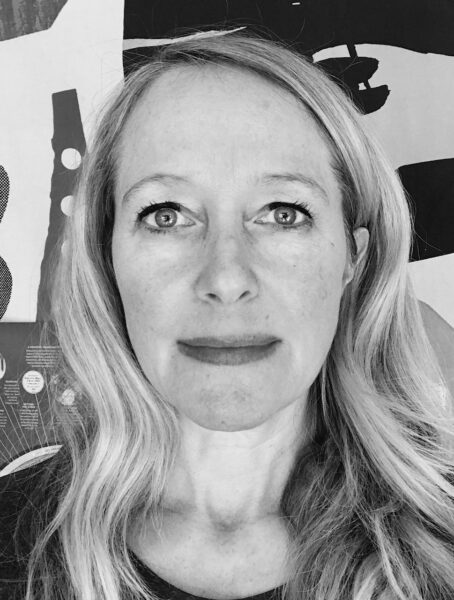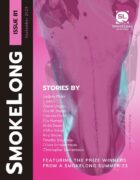What drew you to write about this particular week?
All of 2023 has felt like being on the world’s longest slide and not knowing the particulars of what would be at the bottom. So many things seemed loaded, fraught, or lit on fire. I know this sounds melodramatic. Still, that’s how it felt. Full of possibility but also fully capable of implosion. I wrote this in January 2023. This last week (August), I dropped my daughter off at college in New York, many states away from Kansas, where we live.
The week in this piece felt like a tipping point to me. I was trying to come to terms with the fact that my daughter would be leaving. I’d also been laid off. It was (and is) a weird and intense time in life with a lot of shifting of roles, recreating identity, and looking back. I guess that’s in part what had me thinking about a “compendium.” All the photos of past times and the little corners of the house, each one presenting me with memories that could be, at any second, beautiful or painful. I think the storms in California were maybe the main trigger for bringing these events and items together because they felt so profoundly disruptive and environment-changing and seemed to embody what I was experiencing emotionally.
At the beginning, you list quite different, distinct events. Did you find any parallels or connections between them when writing this piece?
The connections were mainly about peripheral chaos that can pull you down, how you can, in turns, steel yourself while toppling or just straight-up wallow. I was finding myself pulled between these two states: radiating with heightened emotion and trying to feel nothing at all.
A few years ago, a teenager was killed nearby when he was walking along the highway. I remember a music venue in town put up a marquee sign after that said the kid’s name and then LOVE IS COMING (which is a quote from a Crosby, Stills, Nash, and Young song). I think about this kid every week and this song lyric, and I want this love for him. When I heard that David Crosby died, I immediately thought of this kid and felt such sadness for him and his family and almost a guilt for giving whole days over to worry about what was to come.
For me, the events in this piece were knit together by my feelings about an urgency about time passing, about trying to glean what you can, the love, the emotion, from everything as it rushes by.
David Crosby is mentioned a few times regarding his passing and even gets his own line. What were the intentions behind Crosby saying this bit of dialogue as opposed to yourself?
I used to go to record stores in high school with my brother, and we’d buy everything we could afford. We both went through our CSN&Y phases, and I think hearing that David Crosby died affected me. It wasn’t that I’d followed his career that much after I was a teenager, but he definitely spoke to a time and a place and a feeling. I’ve never been a person who communicates love easily with words. I tend to hold a lot back, so I guess it made sense to let David Crosby say what I couldn’t or can’t. This feeling of things going, going, gone, but wanting to encapsulate them, all the moments, to have this nighttime, bulb-lit, full-of-love, family-connectedness, brimming-over moment. I know I will forever think about and remember my daughter reciting Sylvia Plath while I could see her breath and my husband and son were shadows. Anyway, everybody I love you. There, I said it.
The line “What if we pruned away everything that was beautiful but might also hurt us” is excellent. When writing, do you find that lines like this one come easy to you?
Honestly, I really worried this line was sappy. I took it out and then put it back. This line did come without thinking, and sometimes I distrust those lines, especially when they say something too overtly. Sometimes, I think I overcut and make a piece too glib and hollow, so it’s always a balancing act to really get at the feeling but not say too much. But also, my recurring thought as “a writer” is: Who am I to say anything about anything?
Despite the tumultuous events you recount, “Compendium” ends with an air of hopefulness. What do you wish to leave your readers with after they read it?
I heard an NPR story where a mother said of her own daughter leaving for college, “When my daughter left, I left, too.” That mother found her own big adventure and sunk herself into it so she wouldn’t be floating around in the what-was of her life. I have another child at home, so I’m not going anywhere yet, but I guess the hope at the end of this piece, for me, has to do with always searching for and finding the things right in your world that bring you joy instead of lingering too much in the hollows and sadness. I am bad at this, and I often find myself battered by nostalgia. But I think what I got from writing this is a reminder to look around at what you do have and think: Yes, it’s all here right now.



 The core workshop of SmokeLong Fitness is all in writing, so you can take part from anywhere at anytime. We are excited about creating a supportive, consistent and structured environment for flash writers to work on their craft in a community. We are thrilled and proud to say that our workshop participants have won, placed, or been listed in every major flash competition. Community works.
The core workshop of SmokeLong Fitness is all in writing, so you can take part from anywhere at anytime. We are excited about creating a supportive, consistent and structured environment for flash writers to work on their craft in a community. We are thrilled and proud to say that our workshop participants have won, placed, or been listed in every major flash competition. Community works.